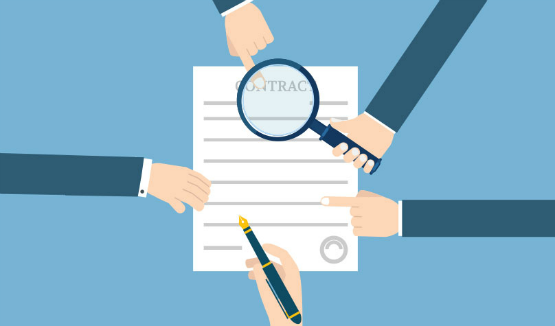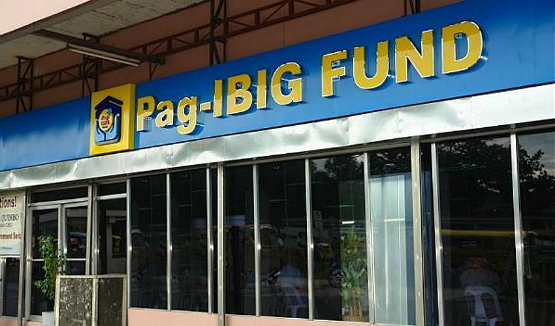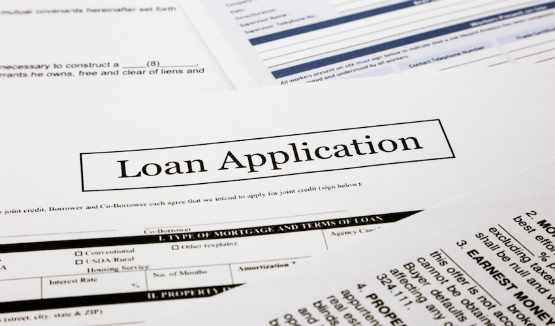Disclaimer: We have published the best questions, answers and comments about homebuying in the Philippines, with some in condensed, edited forms for easy reading. Otherwise, the essence of the question, statement or recommendation are just the same.

From 12 Things Nobody Teaches You About Buying a Home in the Philippines
User Lori commented:
“#4, I wish more brokers would actually ask me what I’m looking for FIRST instead of immediately asking for a reservation fee.”
Daniel Andrei R. Garcia replied:
“The thing is, here in the PH, there are a lot of these so-called “colorum” brokers or unlicensed brokers. Basically, their idea is everybody could become a broker if they know somebody a. who would buy and b. somebody who is selling. Professionalizing the calling is the right step. But the PH market still has a long way to go…“

From The Simplified Anatomy Of A Condo Contract To Sell
User name MAE asked:
“My family is planning to buy a resale or preowned condo unit pero di pa po tapos yung amortization ng seller sa bank, may 23 months pa po. And the only document the seller has is the contract to sell from the developer, wala pa pong condominium certificate of title. What steps are we going to take to acquire the condo unit?”
ZipMatch replied:
“Before buying a resale or preowned condo, you would need to understand ano po yung iaassume nyong mga responsibilities as dictated sa contract to sell before actually committing to buy the property (like the fees and other costs you will be shelling out upon purchase of the property, and costs that will incur upon transfer of the property). Examples of these are utility ownership rights transfer fees, assignment fees (see #4), and dues that the previous owner may not have cleared with property management (parking/security charges, homeowners’ association fees).
Moreover, you need to ask the seller whether he can secure a document from his bank saying that the latter agrees to give the ownership documents (including the condominium certificate of title) to you upon full payment of the mortgage. Pag settle nyo na po yung full payment ng home loan ni seller sa bangko, ituturn over ni bangko yung ownership documents, including one saying na cleared po kayo from the bank.”

From Spot That Scam: 9 Common Real Estate M.O. to Avoid in the Philippines
Angelita Java Leuterio shared:
“I have already paid Avida Land Php342,000 for my Avida Prime Taft Condo unit. I started paying them Dec 2011, which ended November 30, 2014. Feb 28, 2015, I received an email from Avida that my account has been cancelled after several notices served ( which I did not receive). When I went to their office upon invitation to sign the contract to sell, I was informed that my account was cancelled because my bank loan was not approved and that I should have paid the 80% balance by Dec 2014.
Now, they agreed to have my account re-opened but I have to pay them Php5000 penalty & service fee, and have to agree that the cost of my condo will increase from Php1.89Million to Php2.27Million.”
Real estate broker Sedfrey Lagman Lacsamana (who is not affiliated with Avida) replied:
“I feel that this could have been strategically resolved if you have your real estate broker or salesperson assist you in dealing with the real estate developer. Sometimes, lapses in judgement in raising inquiries with the front liners of the developer causes poor customer management. With proper communication strategies, this can be easily resolved. Not only allowing you to retain the total contract price to its original price, but also, it you would have avoided forfeiting your hard earned money…I would recommend that you inquire and request for the receiving copy of notarial notices (that they claim they have sent). A developer is required to issue such notice (with an evidence that it was received) before they can cancel your account. You could have talked to the higher authority in Avida to consider your appeal not to cancel your account.”
Exequiel Raguini posted this question:
“How to check if the developer is legit?”
ZipMatch replied:
“One way to check if a real estate developer runs a legitimate business is if they have Certificate of Registration and HLURB-issued License to Sell (LTS) for their projects. Visit HLURB’s website (Online Queries section) to verify this information. Or go to the nearest HLURB Regional Office to check.”
User rogueknight shared:
“I was paying for an Avida property for 3+ years now. Our checking account was closed on around May-June 2012. After that, we paid through cash thru the agent. After that, we continually had the payment of 30k/per month as to the original amount of 24,804.64. After few years of not visiting the developer’s office, I finally paid a visit to check and confirm on the delay of turnover. As the representative checked my name, I was not on the list of owners! Then I asked where was that agent, the staff told me that she resigned already a few years back. I’m still paying the 30k monthly to the said agent. They said there could be a technical error/s on the data. They are already verifying my account right now. Is this possible that a resigned employee still manages the account?”
User Jasmin replied:
“You should never ever pay cash to an agent. Agents come and go in the competitive real estate industry. Your best ally here is the following documents: Reservation Fee receipt, Signed Contract to Sell and Receipts of all payments you made to Avida. There are a lot of scrupulous agents and they usually come and go on this competitive real estate industry so it’s best if you pay using check or bank transfer using Avida’s name.”

From 8 Ways To Pay Your Pag-IBIG Contributions, Housing and Loan Payments
User mel asked:
“How do we download the monthly HDMF billing covering our mortgaged property?”
Zipmatch answered:
“You can go to the online services site of HDMF (https://www.pagibigfundservices.com/) and enroll in the Paperless Housing Loan Billing Services. You will receive the billing statement via email.”
User rode asked:
“Ask ko lang po kase may utang po ako sa housing loan bale 500k php na lng po gusto ko sana mag bayad kahit 100K php pag may pera sa principal po ba mapupunta ung 100k php na ibabayad ko pero tuloy tuloy pa rin nmn ang hulog ko sa monthly amortization ko. Tnx.”
ZipMatch replied:
“Ganito po kase yung computation ng Pag-IBIG:
Monthly Amortization Payment = (Loanable Amount) x (Factor Rate)
Yung Factor rate po is base po sa number of years ng loan nyo at Pag-IBIG interest rate.
Dinidetermine po yung monthly amortization rate nyo po at the onset ng loan. So any excess payments po ay napupunta sa future amortizations ninyo. Ideally, the quicker you make your payments, the faster matatapos nyo pong mababayaran yung Pag-IBIG loan.”
Melissa Alcebar asked:
“Pano po magbayad kung cheque ang issue ko? payable to?”
ZipMatch answered:
“Maari ninyo pong i-check ang inyong remittances online via HDMF’s E-Services portal. Ayon po sa Pag-IBIG, mga 2-3 business days pa po bago ito magreflect sa inyong account… Kung hindi pa po nagrereflect ang inyong contribution, maari po kayong magpadala ng e-mail sa Pag-IBIG. I-send ninyo po ang concern sa publicaffairs@pagibigfund.gov.ph.”

From Tips in Applying for a Housing Loan in the Philippines
User jojo asked:
“Magkano po ba ang average bank charges for the housing loan amount of 1,500,000 php?”
ZipMatch replied:
“Ang halaga ng bank charges po ay depende sa bangko kung saan kayo kukuha ng loan at sa loanable amount na kukunin ninyo. Kadalasan po, nag-rarange ito sa 2% to 5%, pero kailangan pa rin pong iverify ito sa bangko ninyo. Maari niyo din pong icheck itong article para makita kung ano ang fees na madalas kasama sa bank charges.”

From 9 Things First-Time Home Buyers Need to Know About Condominium Association Dues
Audree shared:
“We live in a DMCI Homes project that was finished late last year only and now they’re already informing us about a 20% increase in dues – with no justification of any new facility or amenity that we are aware of. Would you know if there are governing laws that explain the increase of association dues, especially in this situation?”
ZipMatch commented:
“Homeowner’s association should provide some sort of explanation on why the increase should be implemented. And yes, you’re right: increase in dues should be supported by a particular project or any significant expense that a residential project should spend, especially if it warrants it (ex. maintenance). Moreover, you should have been aware of such plans as proposals like these should go through voting and that a majority vote should have supported this increase.
I am not aware of any laws that would support the increase, but you can demand a document of sorts on why the increase is implemented and where the money would be going to. Usually, the association can explain this in a memo. If not, ask them to draft one.”

From Top 10 Common Questions Homebuyers ask about Philippine real estate laws
User Hon asked:
“We bought a house and lot. We already paid the whole downpayment and more than 1 year of amortization but we don’t want to buy the property anymore because it is hard for us to maintain the house if we are outside the country . The property is not in our name yet and not yet processed with PAG-IBIG. We just have the contract with seller. What are options to get back our money. If you would send also the specific law that we can quote to our seller. Thank you so much!”
ZipMatch answered:
“As far as I know, you need to check the terms of the agreement that you have with your seller that should be documented either in a Reservation of Agreement or a Contract to Sell. The only time that you will insist on the law is if you need additional legalities to back up your claim.
As much as these documents protect the homebuyer, they are also issued to also protect the seller’s rights, since technically the seller also agreed to let you purchase the property in installments as oppose of selling it to a buyer who can pay the property in full. So it really depends on the terms of your agreement if you can still get some of your payments back.”
Belle Raymundo asked:
“My equity payment is for 15 months and I have issued post dated cheques. Due to employment reasons, na-delay ako ng 3 months so ang nakahold na cheque is 3. But I see to it that I am paying monthly, so nakahold lang yung tatlong cheques and my agent always assure me na nakahold lang yun. I discovered that the developer encashed three cheques (Jan and April 2015) without my go signal. In effect, nagka penalty ako from the bank and I just discovered it now because I received late my statement of account from the bank. I am very willing to pay my late charges but I think its not my responsibility to shoulder the penalties na nadeduct sakin dahil wala naman akong advice in the first place to encash it. Please advise what should I do and how should I appeal this.”
ZipMatch replied:
“You can consult your contract to sell with your lawyer if there is any stipulation that can relieve you from the penalty. But have you escalated this issue with your agent/developer? I’m sure that they’ll be able to provide a remedy about this since you do have proof that you are paying monthly, and that your agent is aware of the situation.”
Do you still have burning questions about owning a condo, house and lot or townhouse in the Philippines? Start a discussion by clicking on any of the article links below or suggest a new topic as a comment below.
Like What you've read?
-
Al San Juan











